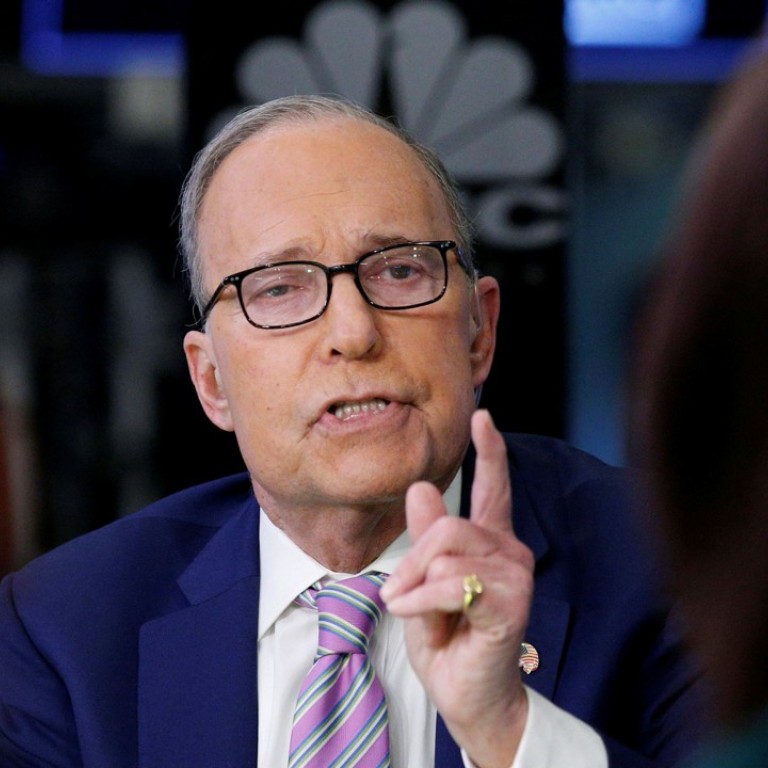
TV personality Larry Kudlow, hired as Trump’s economic adviser, declares China deserves ‘comeuppance’
CNBC’s Kudlow, a long-time Trump loyalist, called for an international ‘trade coalition of the willing’ to go up against China for breaking rules ‘left and right’
A little more than a week after US President Donald Trump’s chief economic adviser, Gary Cohn, quit in response to Trump’s sweeping tariffs on imported metals, the White House announced he was being replaced with TV personality and analyst Larry Kudlow.
Kudlow, a staunch free-trader with experience on Wall Street and known for his hard-charging style, wasted no time in laying down the law to China, saying Beijing deserved its “comeuppance”.
Named Wednesday to be the new director of the National Economic Council, Kudlow shares the US president’s penchant for media promotion and, perhaps most important, has proved to be a loyal supporter and informal adviser from Trump’s early days in the campaign.
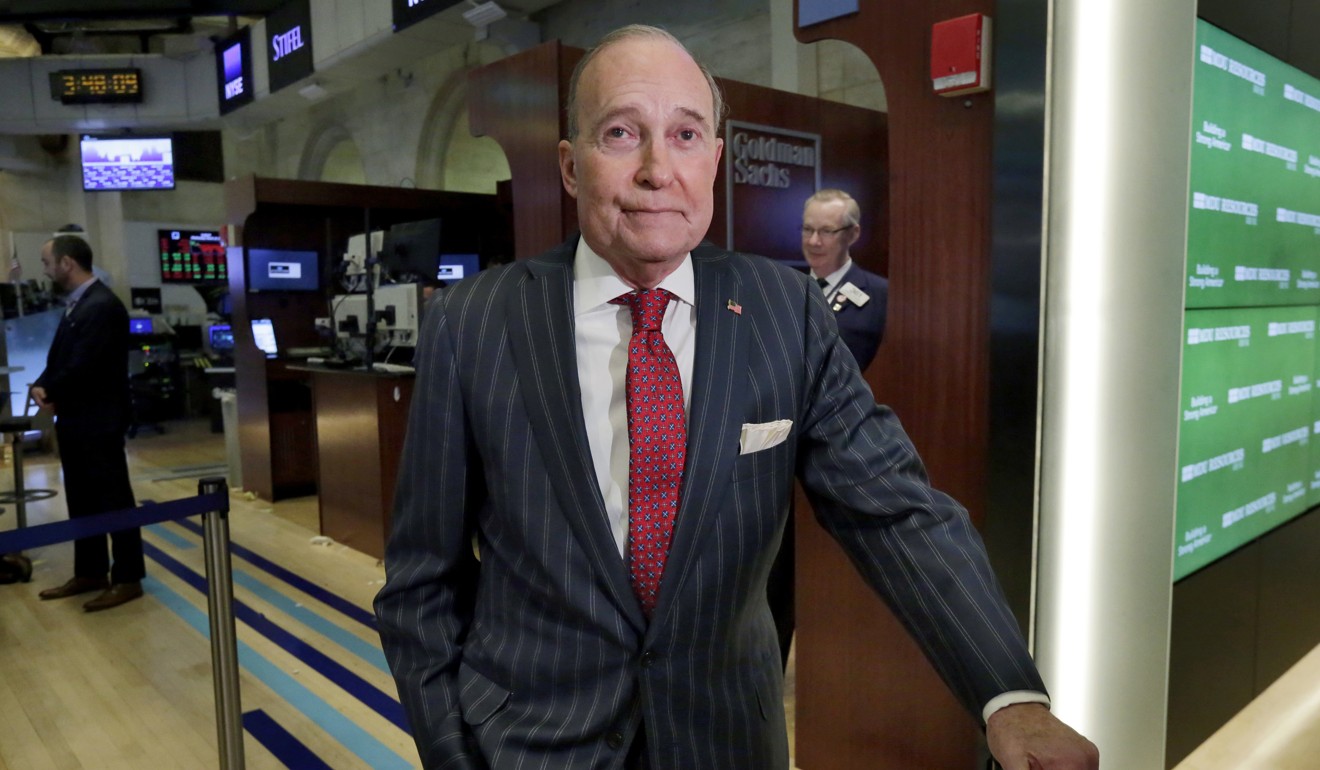
Kudlow, a familiar commentator on CNBC who worked in the Reagan administration’s budget office, enters an administration revolving door that on Tuesday saw the abrupt firing of Secretary of State Rex Tillerson.
The 70-year-old Kudlow joins a Trump trade and economics team that includes chief trade official Robert Lighthizer, who is renegotiating the North American Free Trade Agreement, and the recently ascendant China hawk Peter Navarro, a top trade adviser.
Kudlow, too, favours a tougher line with China on trade.
“I must say as somebody who doesn’t like tariffs, I think China has earned a tough response not only from the United States,” Kudlow said Wednesday on CNBC after confirmation of his appointment.
In his first interview since being offered the job on Tuesday, Kudlow lashed out at China.
“A thought that I have is the United States could lead a coalition of large trading partners and allies against China, or to let China know that they’re breaking the rules left and right,” he said. “That’s the way I’d like to see. You call it a sort of a trade coalition of the willing,” an apparent reference to President George W. Bush’s “coalition of the willing” in the war against Iraq.
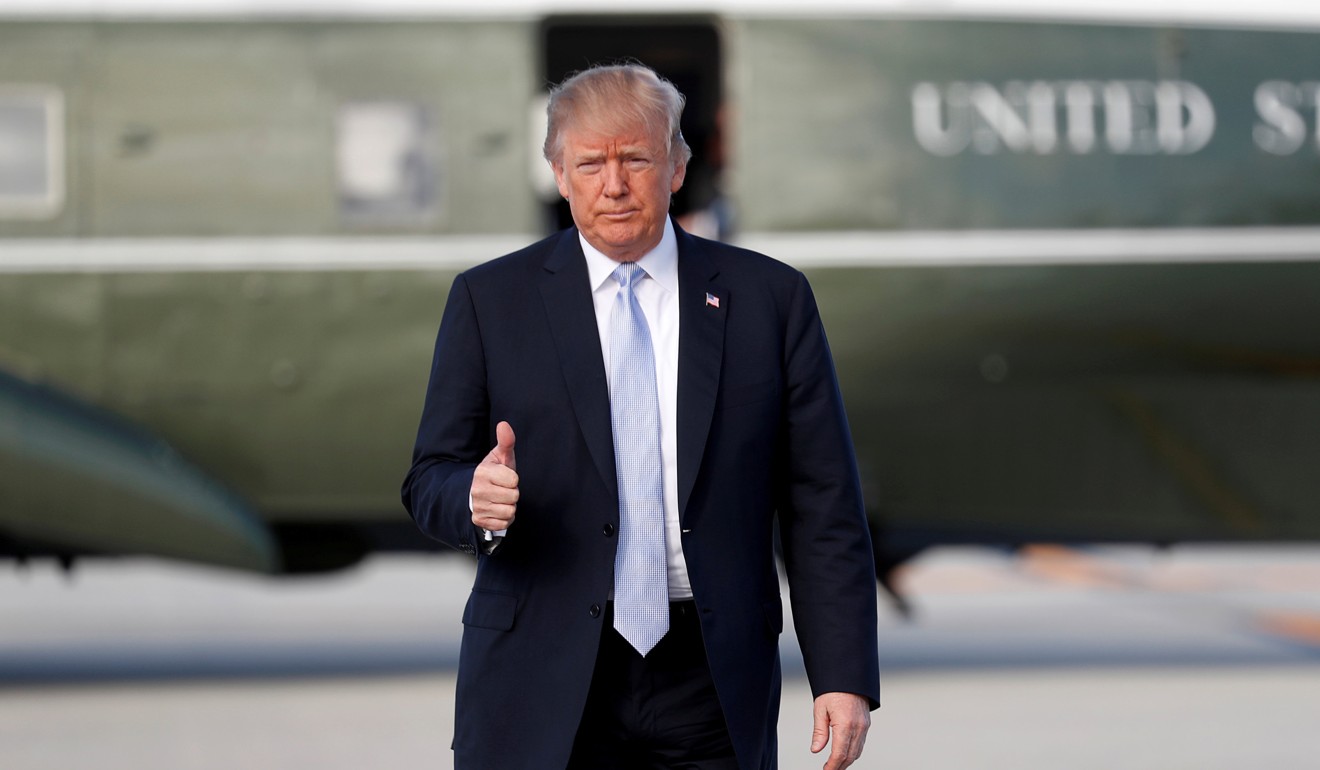
White House spokeswoman Sarah Huckabee Sanders confirmed Kudlow’s appointment, which does not need Senate confirmation. “We will work to have an orderly transition and will keep everyone posted on the timing of him officially assuming the role,” she said Wednesday.
Cohn, a former Goldman Sachs executive, announced his resignation March 6 after he lost a pitched battle with Navarro and other nationalists in the administration who had backed Trump’s desire to protect domestic metals manufacturers by levying duties of 25 per cent on imported steel and 10 per cent on aluminium.
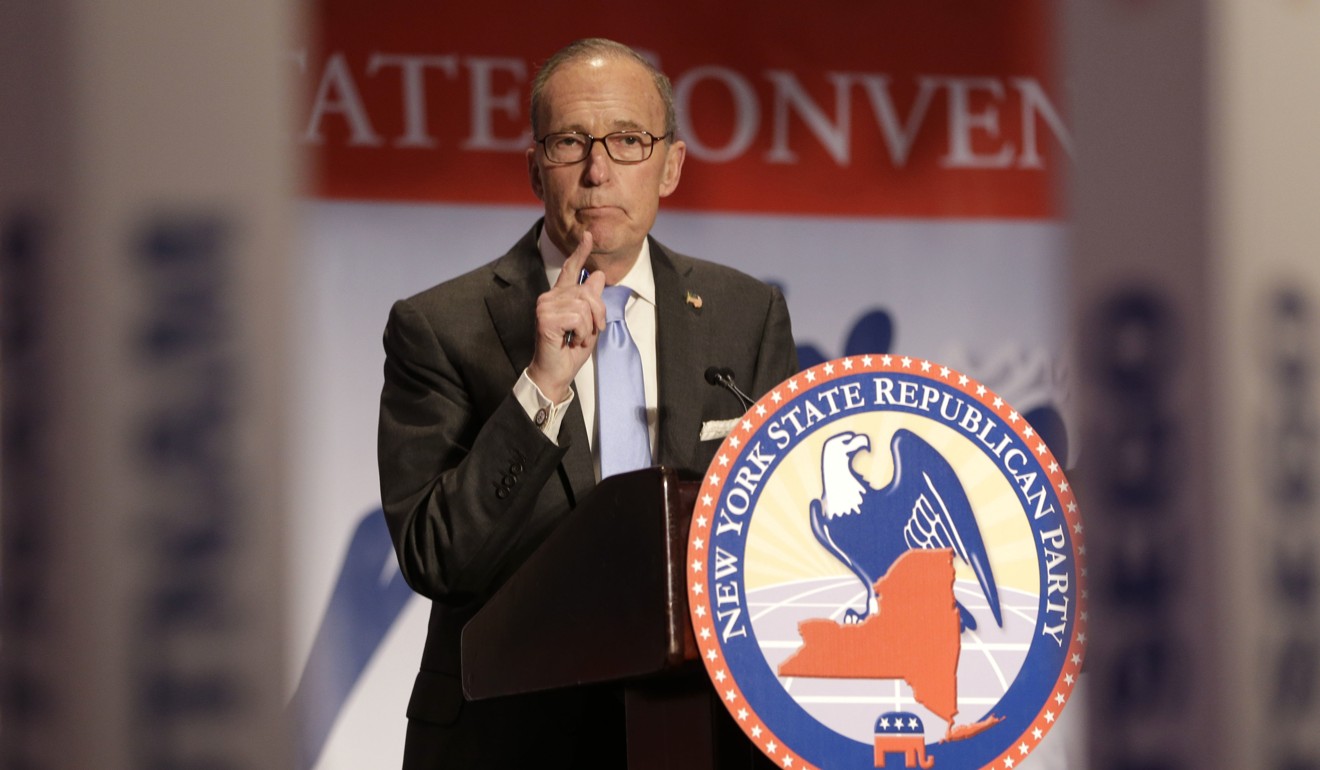
Minutes after his appointment was announced, Kudlow was on CNBC outlining his views on a range of economic fronts, starting with the dollar. In a rare departure for someone about to take a senior government job, he even offered a trading recommendation: “I would buy King Dollar and I would sell gold.”
Kudlow also indicated the administration was readying a larger round of tariffs against Chinese imports. China has earned a “tough response” for not playing by the rules of trade, he said. “China needs a comeuppance on trade, I believe that,” he added.
He backed off previous criticism of Trump’s tariff plans, instead praising Trump’s skill as a negotiator and warning of potential new tariffs on European cars. He cited a source – who he hinted was Trump – telling him that Canadian Prime Minister Justin Trudeau “has been on the phone with the president” making concessions on Nafta negotiations “hand over fist.”
While White House officials traditionally avoid commenting on monetary policy for fear of encroaching on the Federal Reserve’s independence, Kudlow waded right in, urging the central bank not to “overdo it” in raising interest rates: “Growth is not inflationary. Just let it rip, for heaven’s sake.”
A native of New Jersey, Kudlow graduated from the University of Rochester with a degree in history and did graduate work at Princeton University’s Woodrow Wilson School of Public and International Affairs.
Despite lacking an economics degree, Kudlow worked as a staff economist at the Federal Reserve Bank of New York under Paul Volcker and then became an economist at two well-known Wall Street companies, Paine Webber and Bear Stearns.
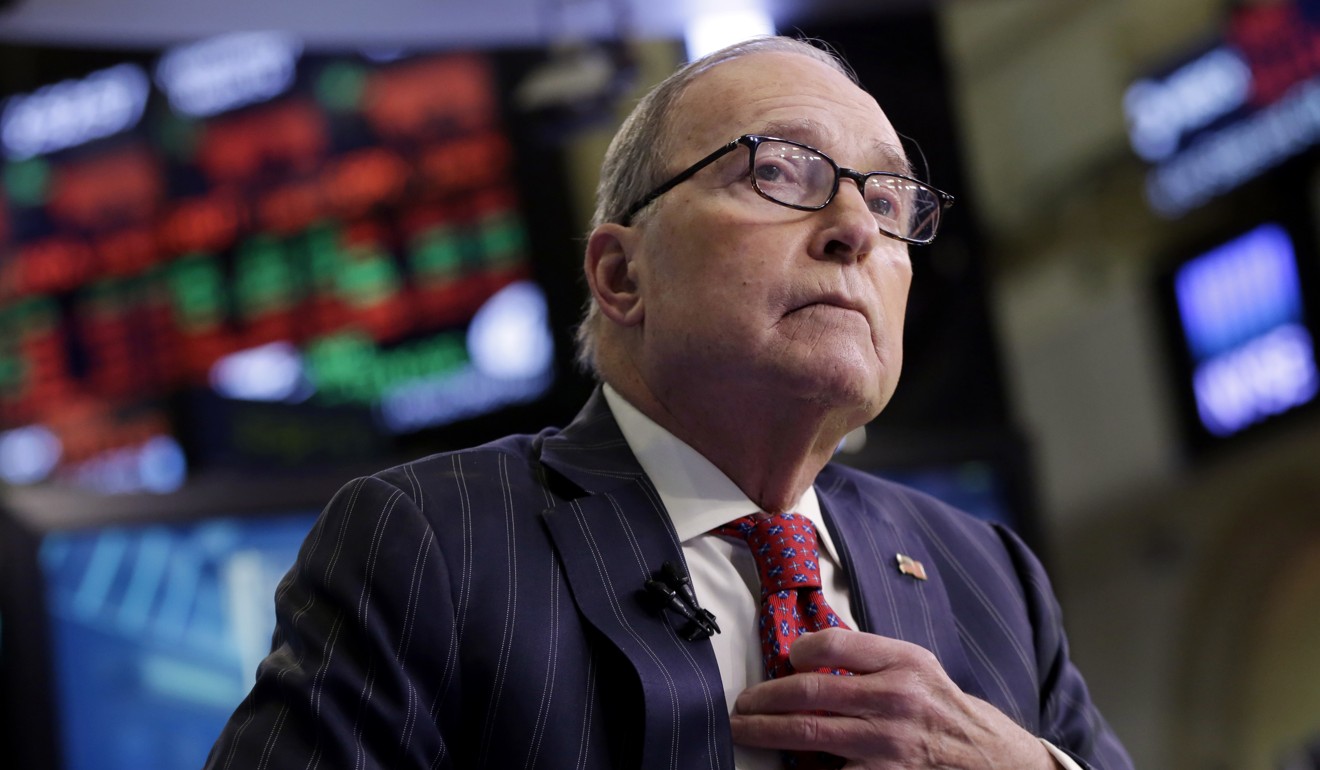
“Larry Kudlow has been off the very (deep) deep-end for years on the more important matters of deficits, tax cut magic, Fed money-printing, wild-eyed economic growth rates, and, above all else, incorrigible cheerleading for Wall Street’s serial financial bubbles,” Stockman wrote on his website.
Other economists had a more favourable view of Kudlow. “Larry is a good choice,” said Mark Zandi, chief economist at Moody’s Analytics.
“He is very much in the Republican mainstream regarding economic policy,” he said. “The NEC director’s main function is around process and making sure everyone in the administration with economic expertise in an area is working together. Given that Larry is smart, articulate, very collegial and such a nice guy, I think he will do the job admirably.”
At the same time, Zandi and other experts wondered how Kudlow’s free-trade stance will square with Trump’s anti-global sentiments, not to mention with strident protectionists like Navarro.
In an interview on CNN last week, Navarro criticised Kudlow on trade, along with Treasury Secretary Steven T. Mnuchin, who worked with Kudlow on Trump’s tax policy in 2016.
“Larry and Steve have never, ever supported the president on trade,” Navarro said, adding that they are “dead wrong on the economics.”
Kudlow’s predictions
Kudlow’s media career, including a column called Kudlow’s Corner, leaves a long trail of forecasts for the US economy, some of which proved accurate and others that fell short. He’s supported much of Trump’s agenda but criticised some key elements of it.
Here’s a collection of his key comments:
On the 2007-09 financial crisis
In 2005, he said “all the bubble heads” looking for a housing-price crash in Las Vegas and Naples, Florida, and the wider economy, would be proven wrong.
By December 2007, the month the National Bureau of Economic Research later dated the start of the recession, he was arguing there was no recession and that the “Bush boom continues.”
“The pessimistas are a persistent bunch,” he said.
On inflation
Kudlow predicted in 2010 that Federal Reserve Chair Janet Yellen would spur higher inflation, which didn’t happen.
In 2014 he argued lower oil prices are unambiguously good – versus the Fed’s and most economists’ view that there are winners and losers to lower oil prices as the US has become a bigger producer.
On economic growth
Echoing Trump, Kudlow in 2015 said the US should have a 5 per cent growth target, which is more than most economists think is realistic.
The Fed’s long-term growth estimate is less than 2 per cent. Treasury Secretary Steven Mnuchin sees the US economy expanding by 3 per cent or faster because of tax and regulatory reforms.
In 2016, Kudlow predicted a business recession looms. Profits did decline before recovering.
On tax cuts
In December, he said Trump’s tax overhaul will lead to 3 per cent to 4 per cent growth, more optimistic than most forecasts, and said the president is on the side of the “growth angels.”
He said in February that a recovering economy could push long-term interest rates beyond 3.5 per cent.
On immigration
In 2015, he called for a halt to immigration, changing his position he said because of national security concerns: “Seal the borders,” he wrote.
On trade
He criticised Trump’s trade agenda before his election and more recently labelled his tariffs as tax hikes and prosperity killers.
He’s joined other economists in warning they put at risk five million jobs in industries that use steel.
On the dollar
He has argued Trump needs to embrace a strong dollar policy.
On the Trump stock market
He predicted the stock market would go up if Trump was elected. Contrary to a lot of commentators, he was right.

